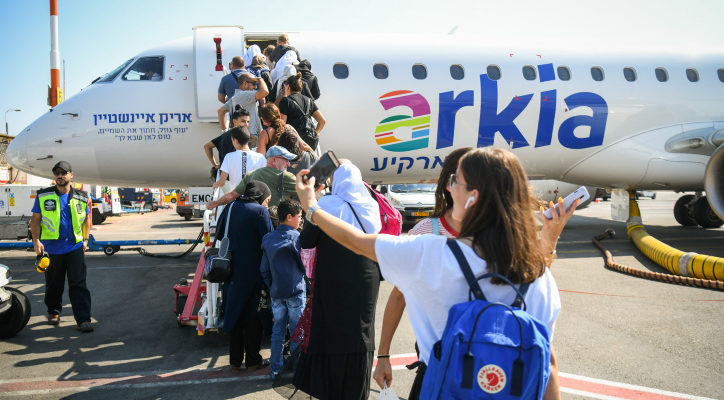The coronavirus crisis is causing serious disruption to Israel’s airlines.
By David Isaac, World Israel News
Israel’s smaller airlines, Arkia and Israir, have decided to halt all international operations in the coming days.
Describing it as “an unusual, extreme and unprecedented step,” Israel Hayom reports that it puts a bullet point on Israel’s isolation in the midst of the coronavirus panic that increasingly looks to send the globe into economic recession.
El Al, Israel’s nation’s carrier, held an emergency meeting on Monday night and is “expected to shrink its operations in a meaningful way” as well, the paper reports.
With other international airlines expected to announce the stoppage of flights to Israel in the coming days, it means Israel will be nearly completely cut off.
Seeking to avoid total isolation, El Al CEO Gonen Usishkin said during the Monday meeting, “El Al affords the highest value to guarding the flight paths to and from Israel in this hour of emergency and therefore will continue to operate flights to America, Europe and Africa in accordance with supply and demand.”
There is a question whether Israel’s smaller airlines will survive the crisis. An El Al official told Kan, Israel’s public broadcaster, already in late February, “The airlines here will collapse within weeks. El Al sustained damage of $50 million (NIS 200 million) from the coronavirus even before the Health Ministry announcement. If the state doesn’t wake up there won’t be an airline here in a matter of weeks.”
El Al has announced the layoff of 1,000 employees.
The situation is worse for Arkia and Israir. Coronavirus is the second blow to befall the two airlines, which already suffered a setback with the closing of the Sde Dov airport at the end of June.
On Sunday the Ministry of Finance met with the three airlines to discuss limiting the damages to the companies. The Ministry demanded that the carriers take cost-cutting steps if they want the state to cover their funding gaps, Calcalist reported on Monday.





